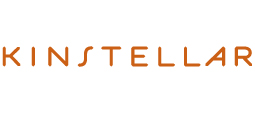Bulgaria's economic landscape appears to be evolving rapidly, driven by a proactive government and a series of long-overdue legislative reforms, according to Kinstellar Partner Nina Tsifudina. From changes in the available company forms to alignment with EU regulations and the anticipation of eurozone integration – all these keep the country’s markets buzzing, with movements in the banking and telecommunication sectors leading the charge.
“The recently-elected government's proactive stance has translated into significant legislative updates, which are pivotal for Bulgaria's economic advancement,” Tsifudina begins. “With an eye on the European Union's Resilience and Recovery Plan, many reforms are well underway or have already gained parliamentary approval.”
Notably, Tsifudina mentions the Commercial Act that “underwent changes in early August, generating buzz in legal circles. One particularly notable change is the creation of a new company type – the variable capital company – designed to enhance start-up operations. This structure offers greater flexibility to founders and reduces administrative burdens associated with capital changes,” she explains.
Moreover, Tsifudina shares that Bulgaria has enacted reforms in insolvency proceedings, aligning with an EU-wide regulatory shift. “A novel concept has been introduced – entrepreneurs' insolvency. For the first time, overindebted entrepreneurs will have the opportunity to discharge their debts while continuing their business operations.” She also reports that the country is looking at introducing a new FDI screening mechanism. “We must be one of the rare EU member states that are yet to introduce one.”
Delving even deeper into EU-related updates, Tsifudina reports that the country might soon get a date for entering the eurozone. “The recently adopted national budget aligns with the Maastricht criteria, a precondition for eurozone entry,” she says. “The government's commitment to bring down the inflation rate and secure a date is clear, with plans to announce it later this year, aiming for January 1, 2025, at the latest.” According to her, businesses in Bulgaria are eagerly anticipating this, seeing as how “entering the eurozone will benefit export and facilitate investments.”
Turning to the M&A trends in the country, Tsifudina shares that “Bulgaria has witnessed a healthy level of M&A transactions despite some slowdown due to the country's persistently high inflation. Specifically, the prospect of continuing the banking and financial services sector consolidation is on the horizon,” she says, mentioning the recent acquisition of Raiffeisen Bank Bulgaria by KBC and its subsequent merger with UBB, and Post Bank's acquisition of BNP Paribas' personal finance branch.
Finally, Tsifudina shares that the IT and software services sector has also displayed “remarkable resilience amid economic challenges and geopolitical shifts. Strong developments in the telecommunications sector have been primarily driven by the largest-ever Saudi Arabian investment in Bulgaria, TAWAL’s acquisition of the telecom towers infrastructure assets of United Group, as well as the recently-announced intention of UAE-based Etisalat to acquire a controlling stake in the telecom assets of PPF in Bulgaria, Hungary, Slovakia, and Serbia,” she says. “The TMT sector remains an area of significant activity and growth, with its adaptability positioning it as a cornerstone of Bulgaria's business environment,” Tsifudina concludes.


